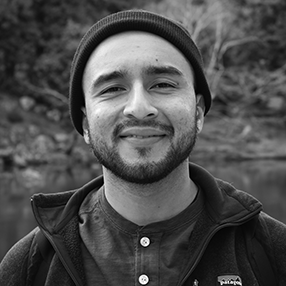Citizenship
it was clear they were hungry
with their carts empty the clothes inside their empty hands
they were hungry because their hands
were empty their hands in trashcans
the trashcans on the street
the asphalt street on the red dirt the dirt taxpayers pay for
up to that invisible line visible thick white paint
visible booths visible with the fence starting from the booths
booth road booth road booth road office building then the fence
fence fence fence
it started from a corner with an iron pole
always an iron pole at the beginning
those men those women could walk between booths
say hi to white or brown officers no problem
the problem I think were carts belts jackets
we didn’t have any
or maybe not the problem
our skin sunburned all of us spoke Spanish
we didn’t know how they had ended up that way
on that side
we didn’t know how we had ended up here
we didn’t know but we understood why they walk
the opposite direction to buy food on this side
this side we all know is hunger
From Unaccompanied (Copper Canyon Press, 2017). Copyright © 2017 by Javier Zamora. Published in Poem-a-Day on March 20, 2018, by the Academy of American Poets.

